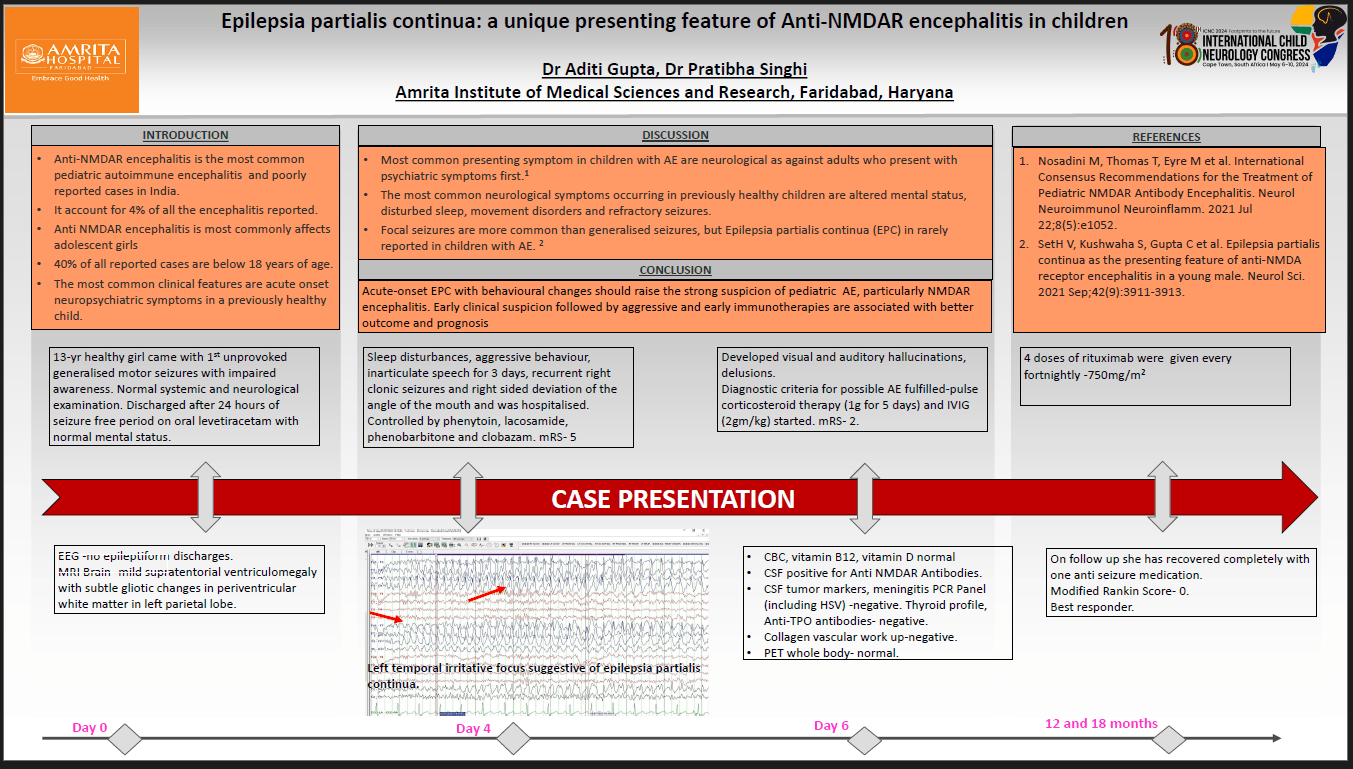Epilepsia Partialis Continua: A Unique Presentation Of Anti-NMDAR Encephalitis
Objective: A healthy teenager with first unprovoked generalised motor seizures that rapidly progressed to epilepsia partialis continua (EPC) with left temporal irritative focus. Later developed behavioural abnormalities and cognitive decline. The only neurological investigation of significance was positive Anti-NMDAR antibodies in CSF.
Case: A 13-year-old previously healthy girl presented to our pediatric neurology emergency with first unprovoked generalised motor seizures with impaired awareness but no interictal changes in mental status, behavior, or movement. EEG initially demonstrated no frank epileptiform discharges. MRI brain showed mild supratentorial ventriculomegaly with subtle gliotic changes in periventricular white matter in left parietal lobe. The patient was discharged home on levetiracetam. Four days later, she was readmitted with increased seizure frequency and insomnia. Examination showed aphasia, and persistent right upper extremity clonic movements with intact awareness. Video EEG reported left temporal irritative focus with ictal rhythm. Seizures were refractory to levetiracetam, lacosamide, phenytoin, phenobarbitone and lorazepam. She later developed mutism, auditory and visual hallucinations. CSF was positive for NMDAR antibodies. Oncologic screening was negative for tumor. Following treatment with methylprednisolone, intravenous immunoglobin and rituximab, seizures became infrequent but motor and cognitive deficit persisted for weeks.
Aditi gupta
Amrita Institute of Medical Sciences
India
Pratibha Singhi
Amrita Institute of Medical Sciences
India
